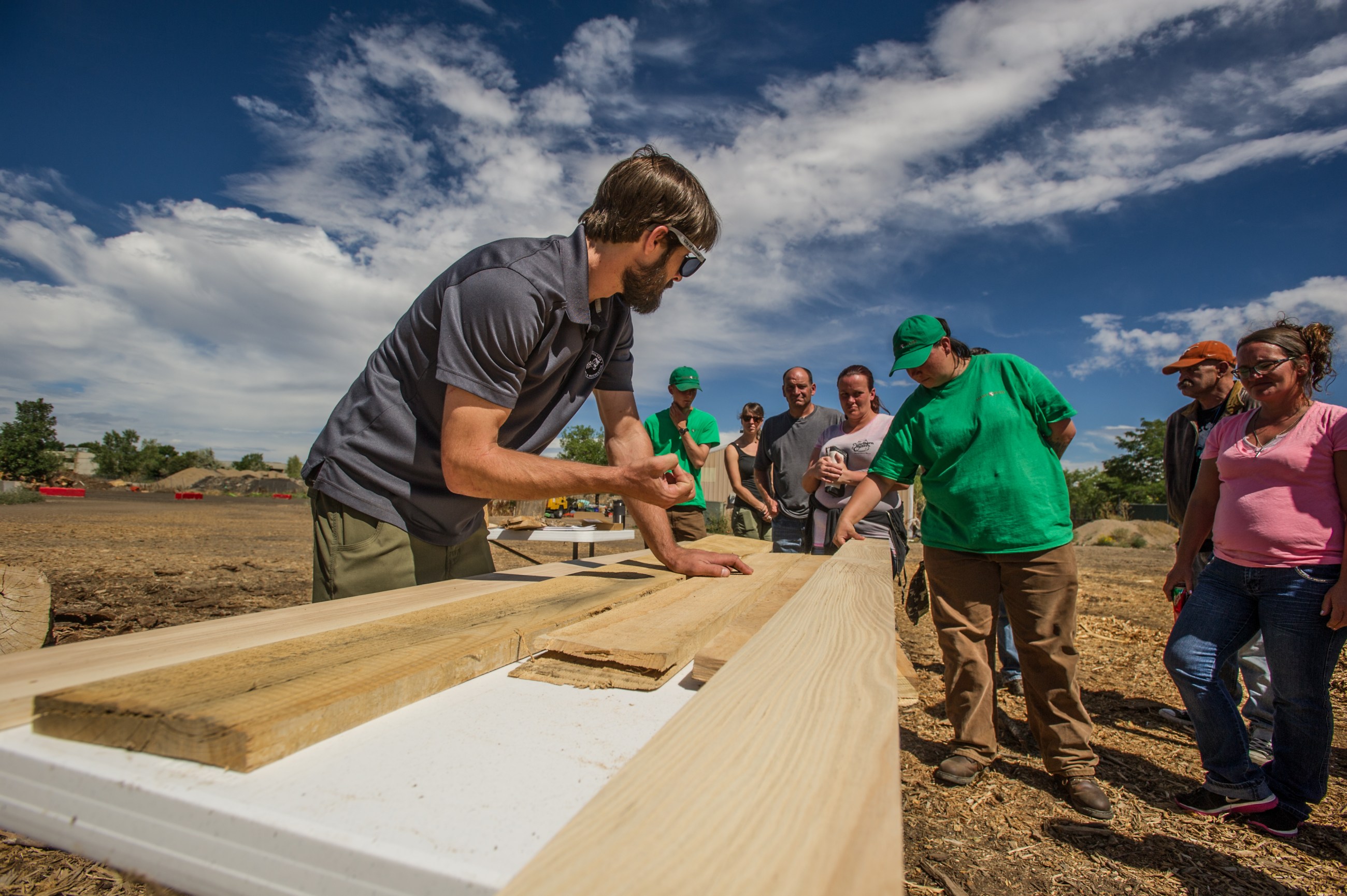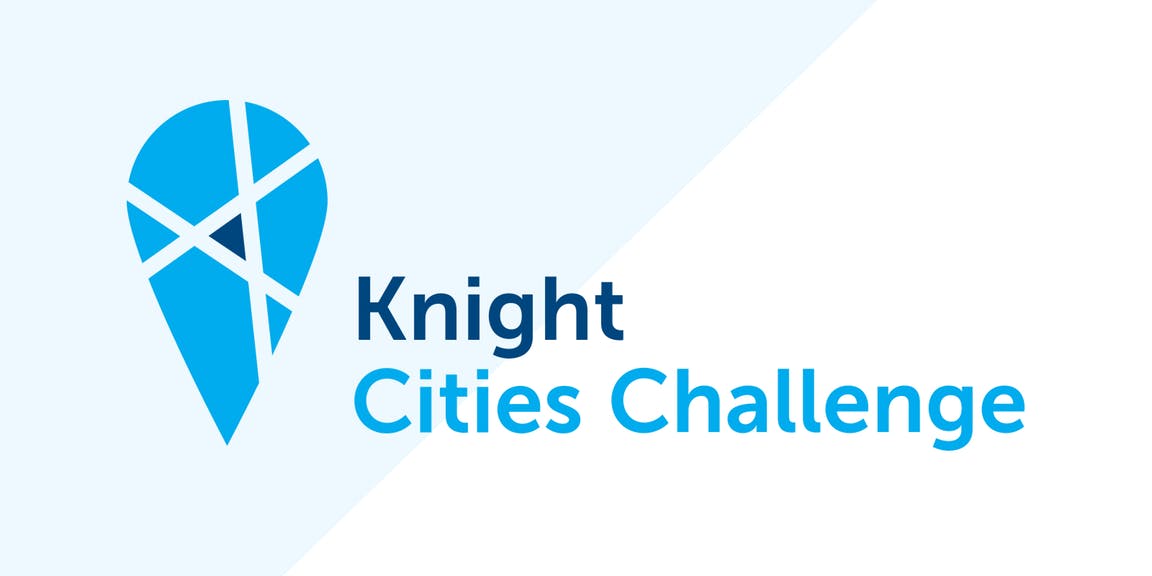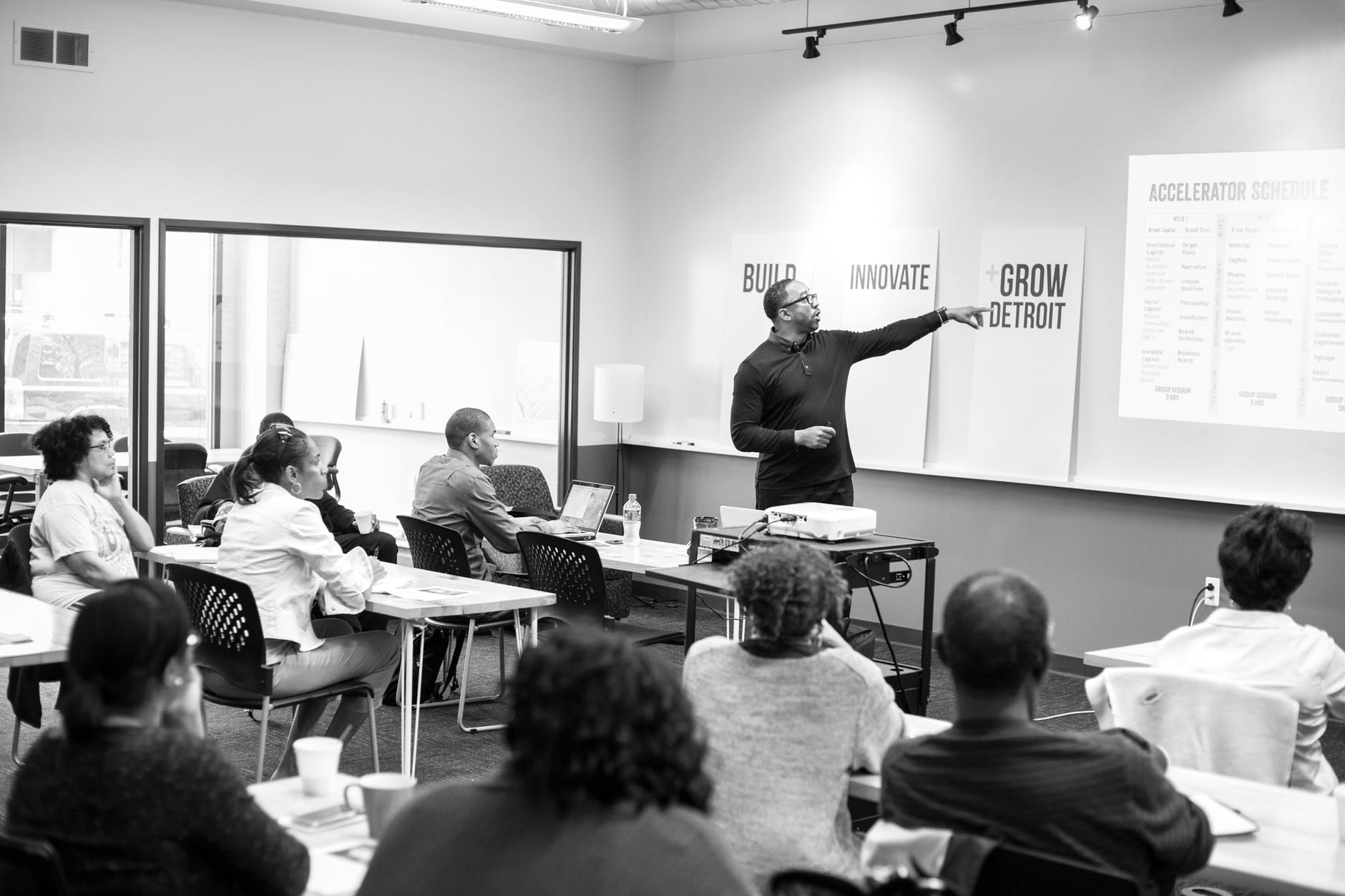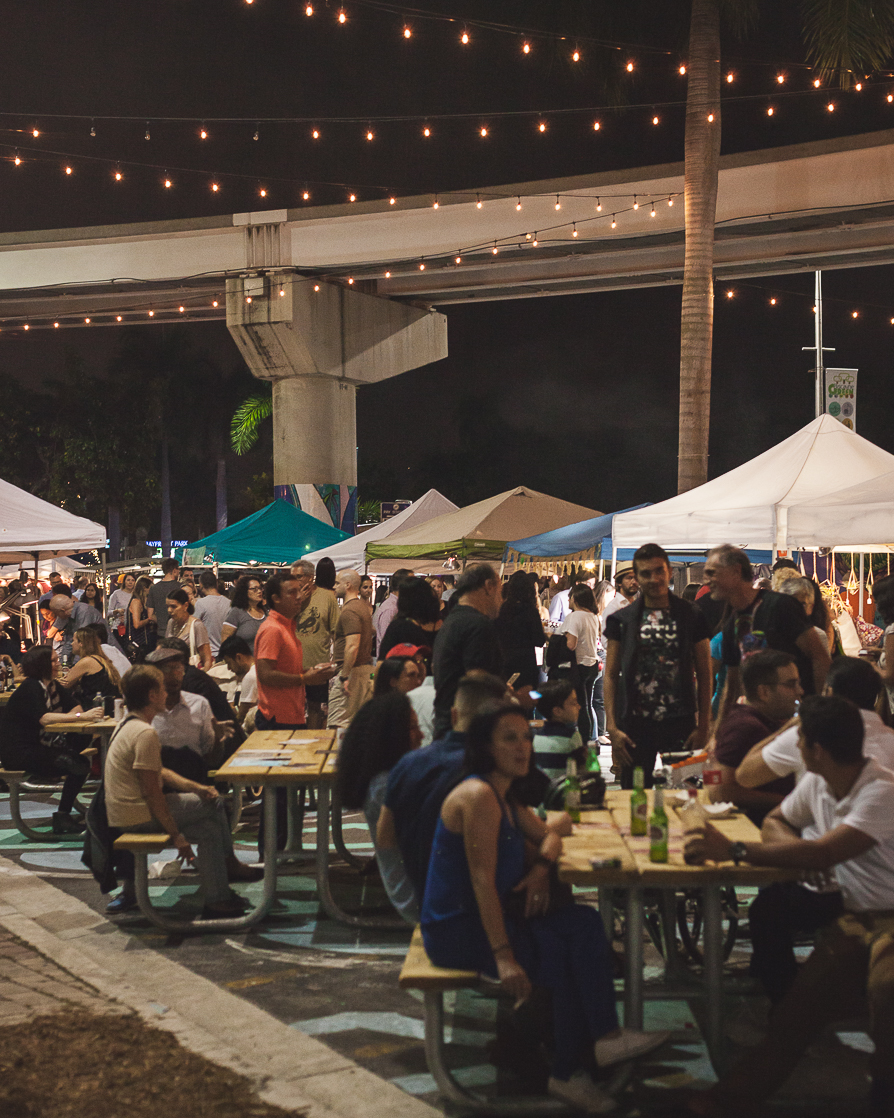
33 winning projects to share $5 million in 2017 Knight Cities Challenge
Congratulations to the 33 winners of the 2017 Knight Cities Challenge. This is Knight Foundation’s third year running the challenge in our 26 communities. Each year we have posed a simple question: “What’s your best idea to make cities more successful?” The rules are simple and so is the application process. We want to encourage ideas from anyone with a good idea and the ability to execute it.
We have been thrilled with the response. The imagination and creativity in Knight communities has been evident through the quantity and variety of innovative ideas that we have received. All have been focused on advancing one or more of the three pillars of city success: talent, opportunity and engagement. We are grateful to all who took the time to participate in the challenge and to share their ideas with us.
This year, we again received more than 4,500 submissions, taking the total number of applications over three years to more than 16,000. In January, we invited 144 finalists to submit full applications. From those finalists, we selected the 33 winners that we are excited to announce today.
The winning projects, subject to final grant agreements, are in 19 of the 26 Knight communities, and the average funding per idea averages slightly more than $147,000.
Since we began the challenge in 2014, I’ve read about 10,000 submissions and all 428 of the final submissions. What’s striking is that a good or even a great idea, isn’t enough to win the challenge. There are many good ideas that we haven’t funded. A great idea can make it to the finalists’ round, but that’s when the hard work of figuring out how to execute on the initial idea begins. Building a full-fledged proposal and plan from a 150-word idea is no easy feat. Winners face the even tougher task of putting the plan into action.
The winners embody some special characteristics. They share a willingness to step outside of their comfort zones, to try something new and to take risks. They are tenacious and able to pivot quickly while retaining focus on their goal. Each winner has demonstrated a hunger to learn, adapt and iterate, and to share knowledge with each other and the field.
We can’t wait for this year’s winners to begin their work. We look forward to seeing their projects come to life in Knight cities across the country and to capturing and sharing their experiences to inform our grant-making.
Keep up with the ongoing conversation and our work in communities on Twitter at #knightcities. Thank you to the readers and advisers who helped us review the applications, and thank you again to all who shared their ideas to make their city more successful.
George Abbott is director of community and national initiatives at Knight Foundation. He can be reached via email at [email protected]. On Twitter, follow @garthurabbott and @knightfdn, and join the #knightcities conversation.

2017 Knight Cities Challenge Winners
Aberdeen, South Dakota
The A Place, $35,000 (by Aberdeen Area Community Foundation; submitted by Julie Johnson): Opening a pathway to more opportunity and civic engagement by creating a one-stop information and assistance center for immigrants and New Americans.
Akron, Ohio
Innerbelt National Forest, $214,420 (submitted by Hunter Franks): Reconnecting two socially and physically isolated neighborhoods by replacing a closed freeway in Akron with a lush forest and public space.
@PLAY, $241,000 (by Art x Love LLC; submitted by William Love): Encouraging deeper community connections through custom games and recreational activities that highlight the unique history, identity and character of each of the city’s communities.
Biloxi, Mississippi
Witnessing the Beach, $100,000 (by Gulf Coast Community Design Studio; submitted by David Perkes): Engaging the public across race, income and age differences through a series of community gathering and discussion spaces at the beach along the path of the “wade-in” protests, which led to the desegregation of the public beach in 1968.
Bradenton, Florida
Speak Up Bradenton, $32,000 (by Manatee County Government; submitted by Simone Peterson): Encouraging greater civic engagement by opening up avenues for citizens to participate in government decision-making in non-traditional settings such as bus stops, landmarks and other public gathering places.
Charlotte, North Carolina
Rail Trail Grove & Field, $150,200 (by Charlotte Center City Partners; submitted by Erin Gillespie): Encouraging economic development and city vibrancy by creating a lively place to connect with nature and neighbors along Charlotte’s light rail line. The space will also help link a retail employment center to the nearest transit stop.
Your Move, Charlotte, $138,875 (submitted by Varian Shrum): Strengthening connections between citizens and local government through a weekly podcast and follow-up roundtable, in which government representatives and millennials engage on local issues.
Columbia, South Carolina
The State’s Front Porch, $195,000 (by city of Columbia; submitted by John Fellows): Encouraging residents to connect with their government by reimagining the State House as a front porch for all, including seating, events and alternative work spaces throughout the State House grounds.
Detroit
Atwater Beach, $225,000 (by Detroit RiverFront Conservancy; submitted by Jan Shimshock): Further activating the Detroit waterfront by creating an inviting, urban beach along the city’s Atwater Street.
Better Buildings, Better Blocks, $150,000 (by Building Community Value; submitted by Chase Cantrell): Providing a pipeline for minorities into real estate jobs, by teaching the fundamentals of small-scale property development and providing initial project financing.
Design Center in a Box: A Place for Informed Community Exchange, $205,000 (by City of Detroit Planning and Development Department; submitted by Susan Burrows): Promoting civic engagement by creating pop-up city planning offices where residents can connect with city planning staff and others to exchange ideas and become informed about the design and planning work happening in their neighborhood and the city at large.
Detroit’s Slow Roll, $129,400 (by Detroit Bike City; submitted by Jeff Herron): Leveraging the 25,000 cyclists who participate in Slow Roll Detroit and demonstrating how to engage Detroit’s nonprofit sector, drive renewal and smile while doing it.
Happy 18th Birthday! Local Citizenship Kit, $101,000 (by Citizen Detroit; submitted by Sandra Yu Stahl): Celebrating Detroiters becoming eligible to vote by sending them a local citizenship kit in the mail on their 18th birthday.
Duluth, Minnesota
Making Canal Park Pop, $200,000 (by city of Duluth; submitted by Elissa Hansen): Connecting residents to both Canal Park and to each other by creating a pop-up parklet that will encourage more people to visit.
Gary, Indiana
City Church Ruins Garden, $163,333 (by City of Gary Redevelopment Commission; submitted by Samuel Salvesen): Making downtown more vibrant by transforming a historic, abandoned Gothic church in downtown into a ruins garden and event space.
Grand Forks, North Dakota
The Grand Forks Freezeway, $141,140 (submitted by Nicholas Jensen): Inspiring winter fun and city pride by turning unused bike paths into ice skating paths during winter.

Lexington, Kentucky
Plant&Play, $125,000 (by North Limestone Community Development Corp.: Building an adventure playscape and community garden in Castlewood Park, a 30-acre neighborhood park on the north end of Lexington.
Macon, Georgia
Back Lot Drive-In at the Tubman, $92,925 (by Tubman Museum; submitted by Jared Wright): Expanding the reach of Macon’s art and museum district by transforming the parking lot of the Tubman Museum into a drive-in theater with screenings that coincide with exhibitions that support the museum’s mission to educate visitors about African-American art, history and culture.
Pop-Up Garage Park, $25,465 (submitted by Cole Porter): Converting an abandoned parking garage into a vibrant, environmentally-friendly community space by introducing green space, art, tables and event programming.
Miami
Civic Incite: Citizens Setting the Agenda, $105,595 (by Civic Incite; submitted by Jorge Damian de la Paz): Inspiring civic engagement with an online platform that tracks public meetings and legislation across cities to promote in-person engagement with local governments.
Miami-Dade Quickbuild Program, $150,000 (by Street Plans Collaborative; submitted by Anthony Garcia): Establishing a program within Miami-Dade County in partnership with local transportation nonprofit Green Mobility Network that advances low-cost, quick-build transportation and open space projects.
Rep(resentative) Miami, $119,800 (by Engage Miami; submitted by Rob Biskupic): Breaking down barriers to civic participation by putting clear, actionable information about local elected officials directly into citizens’ hands.
Milledgeville, Georgia
The Year of Voting Dangerously, $12,000 (by Twin Lakes Library System; submitted by Stephen Houser): Engaging the community with a mobile voting booth that prompts residents to respond to pressing local issues and initiatives.
Palm Beach County, Florida
12 for 12: Popup to Rent, $180,000 (by city of West Palm beach; submitted by Christopher Roog): Expanding on the success of a pilot pop-up gallery project by inviting local talent to activate 12 empty storefront spaces as an economic catalyst for West Palm Beach.
Philadelphia
A Dream Deferred: PHL Redlining – Past, Present, Future, $300,000 (by Little Giant Creative; submitted by Tayyib Smith): Building more equitable communities by launching a series of convenings across several cities where decision-makers, social entrepreneurs, activists and innovators discuss equitable community development.
PHL Participatory Design Lab, $338,000 (by city of Philadelphia; submitted by Liana Dragoman and Anjali Chainani): Providing a space for Philadelphians to design city service solutions with a mobile, participatory city design lab that will travel from neighborhood to neighborhood.
Tabadul: [Re]Presenting and [Ex]Changing Our America, $180,000 (by Al-Bustan Seeds of Culture; submitted by Hazami Sayed): Creating forums for cultural exchange that connect communities and activate public spaces through photographic displays of youths’ expressions of identity.
Up Up & Away: Building a Programming Space for Comics & Beyond, $50,000 (by Amalgam Comics & Coffeehouse; submitted by Ariell Johnson): Creating a space where diverse communities of aspiring comic creators can attend workshops and receive professional development.
Vendor Village in the Park: Vending to Vibrancy, $175,478 (by Southeast Asian Mutual Assistance Corp. [SEAMAAC]; submitted by Thoai Nguyen): Providing entrepreneurial opportunities and connecting diverse communities by opening a marketplace for immigrant cuisine in Mifflin Square Park.
San Jose, California
Local Color, $180,000 (by Exhibition District; submitted by Erin Salazar): Activating vacant commercial sites with a creative bazaar featuring artist studios alongside modular, open spaces for multidisciplinary community learning and teaching.
Reimagining the City: City Designer for San Jose, $150,000 (by city of San Jose; submitted by Shireen Santosham): Working to ensure San Jose develops into a walkable, green and engaged metropolis by hiring a visionary chief architect.
St. Paul, Minnesota
Pop-Up Power to the People, $73,200 (by city of St. Paul; submitted by Catherine Penkert): Creating a suite of fun civic engagement tools that gives St. Paul residents the power to design their own community meetings.
Wichita, Kansas
Horizontes, $100,000 (submitted by Armando Minjarez-Monarrez): Connecting two neighborhoods by painting murals depicting neighborhood residents through an industrial corridor that separates them and engaging residents to reflect on what a “new horizon” for the neighborhood would look like.
-
Community Impact / Press Release
-
Community Impact / Article
-
Community Impact / Press Release
-
Community Impact / Article
Recent Content
-
Community Impactarticle ·
-
Community Impactarticle ·
-
Community Impactarticle ·




